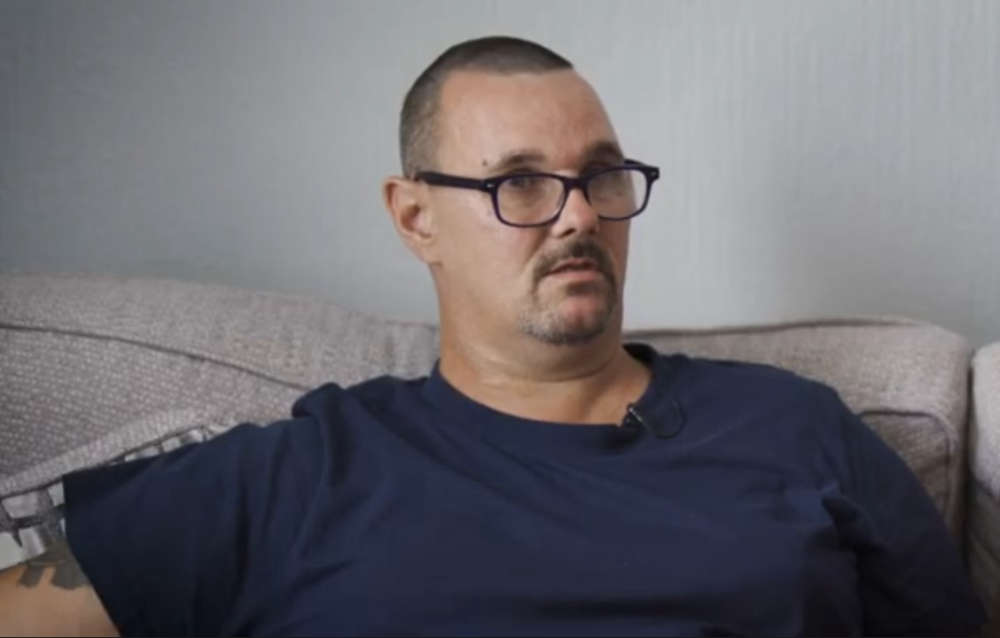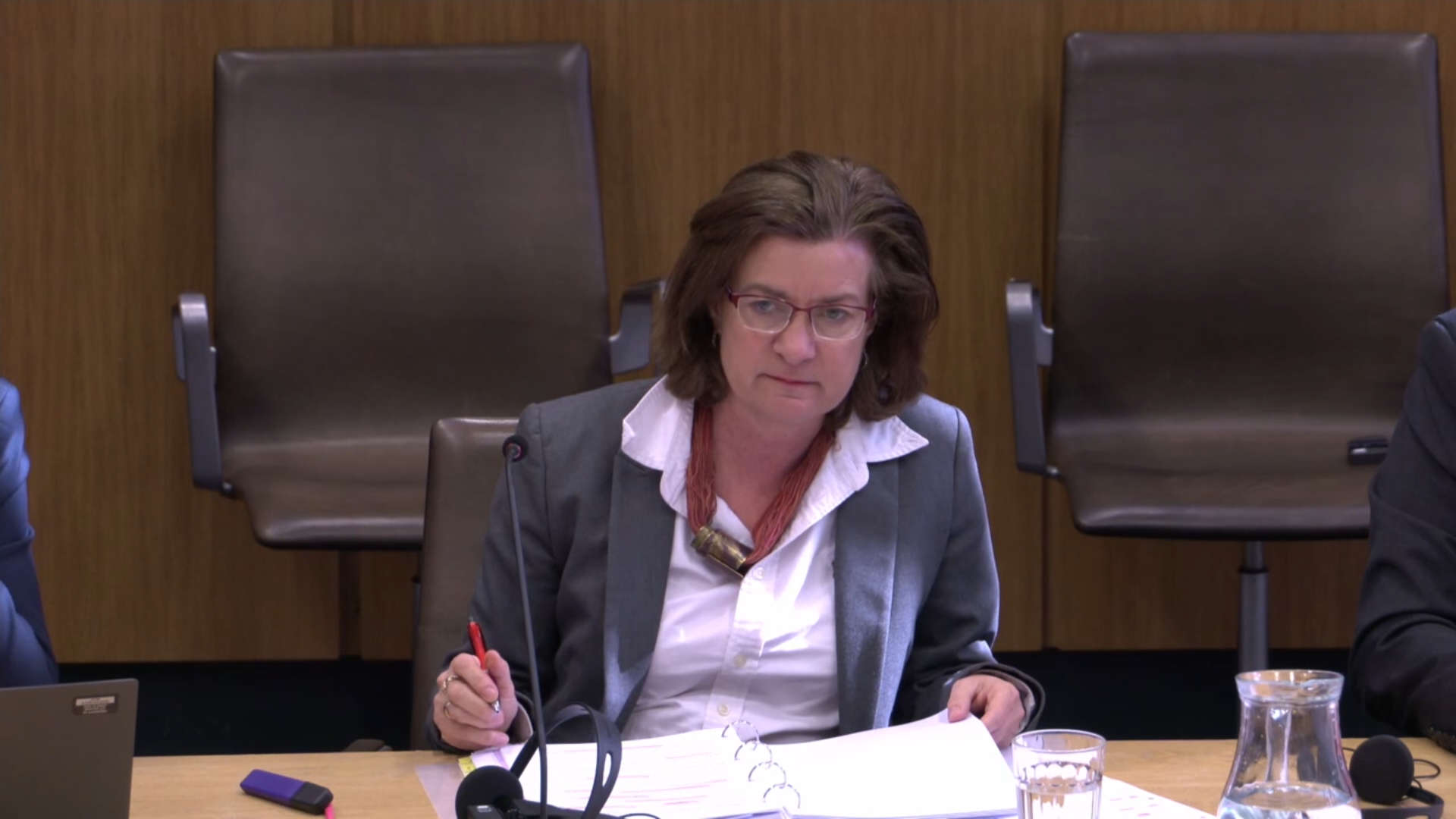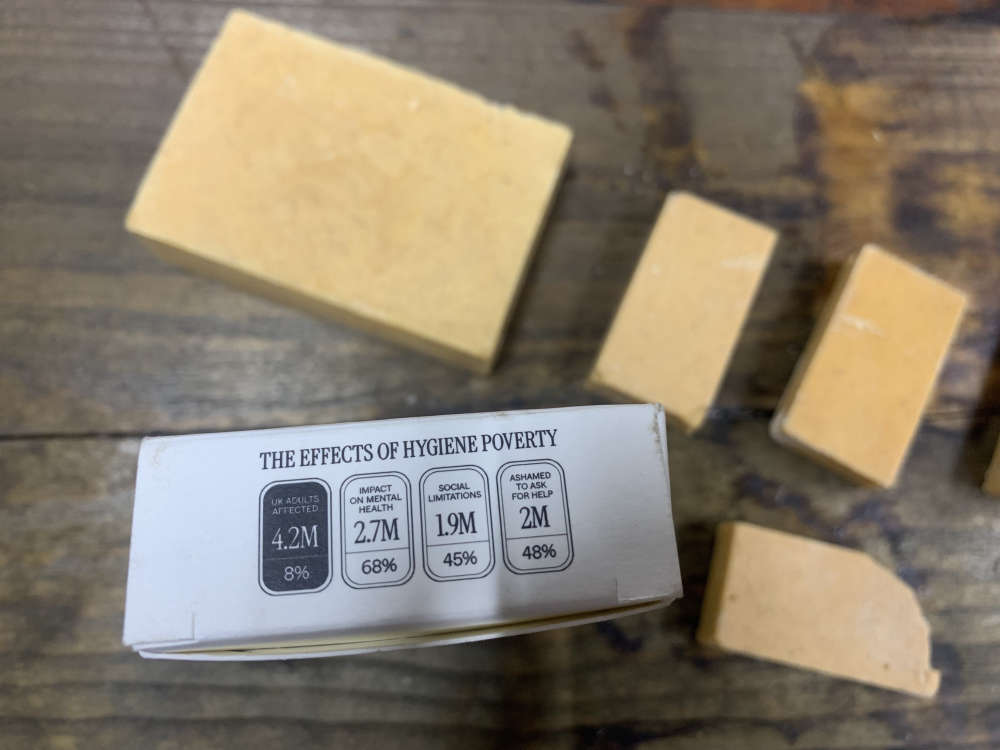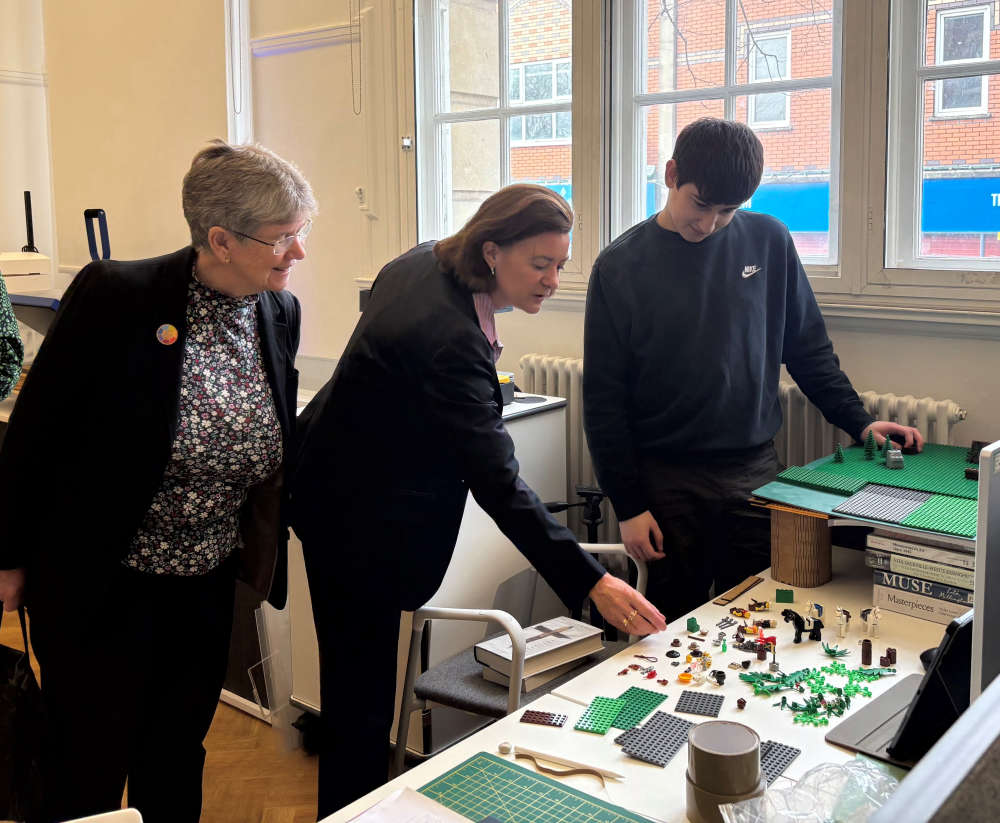
A Barry man who contracted hepatitis C without knowing about it for over twenty years is calling on others to get tested.
Two years ago, Andrew Eadie discovered he had been living with cirrhosis of the liver cased by the infection, which spreads through blood-to-blood contact.
Mr Eadie went to see his doctor for a suspected chest infection in April 2022, but he was referred to the University Hospital of Wales amid concerns about the significant swelling on his stomach.
When he discovered he had hepatitis C, Andrew worked out that he may be contracted it while getting a tattoo on his right arm around 20 years ago.
His wife, Julie Eadie, who works in the prison service, said: “It was just a gut-wrenching shock...I’d heard of hepatitis C before, but I didn’t know much about it, how it affects people or how people get it in the first place."
“After discussions with the consultants, we realised that the only way he could have got it is through infected blood from tattoo guns which he’d used some 20-odd years ago. The virus was just hiding, waiting to pop its head up.”
It's believed around 8,000 people in Wales are thought to be living with hepatitis C - a disease often considered to be a silent killer.
Not many people realise that they've contracted it until they are diagnosed with liver cirrhosis, end-stage liver disease or even liver cancer.
In many cases, the symptoms are vague and may not become obvious until the liver becomes increasingly damaged. These include:
- Flu-like symptoms such as muscle aches and a high temperature (fever)
- Feeling tired all the time
- Loss of appetite
- Abdominal (stomach) pain
- Feeling and being sick
Andrew had to give up his work as a tree surgeon when he became ill with hepatitis C, which could have easily killed him.
But within weeks of being diagnosed with the disease, he was given the all clear thanks to a strict regime of medication.
Julie said: "I cannot fault the NHS. The consultants were straight on him and gave him a huge basket of medication to take over 12 weeks. At week eight they noticed his hepatitis C had disappeared which is quite incredible."
"The virus could have been passed onto me too, which was a scary thought, but thankfully I tested negative."
According to health experts, while tattooing and body piercing using unsterilised needles are known to spread hepatitis C, the main way is through sharing drug-using equipment. In rare cases, it can also be passed on through sexual contact or from mother to baby before or during birth.
The Cardiff and Vale University Health Board (CAVUHB) says it's working alongside the Welsh Government and other authorities in an effort to eliminate hepatitis C as a public threat by the end of the decade.
With the help of new medications revolutionising the treatment of the disease, as manyhE as 98% of people can now be cured.
Delyth Tomkinson, a clinical nurse specialist in blood-borne viruses at CAVHUB, said: "Anybody can get hepatitis C, but one of the biggest challenges we face is making people aware of the risk factors. The testing and treatment for hepatitis C are easy - and most importantly it’s curable."
Meanwhile, Andrew is urging others who fear they may be in a similar position to "get checked, just to be on the safe side".
He added: “There could be many people living with hepatitis C who don’t know they have it.”




 Vale line closes for engineering works
Vale line closes for engineering works
 Freedom of the Vale for RNLI volunteers
Freedom of the Vale for RNLI volunteers
 Senedd moving out of Siambr
Senedd moving out of Siambr
 Norovirus: hospital pressure 'exceptional'
Norovirus: hospital pressure 'exceptional'
 Morgan grilled over £4.8bn benefit cuts
Morgan grilled over £4.8bn benefit cuts
 Barry Bike Club to return
Barry Bike Club to return
 St David bravery award for Penarth lifesaver
St David bravery award for Penarth lifesaver
 Ruth Jones honoured with St David Award
Ruth Jones honoured with St David Award
 Plans for ‘crumbling’ Senedd offices face scrutiny
Plans for ‘crumbling’ Senedd offices face scrutiny
 Work to start on new Vale campuses
Work to start on new Vale campuses
 Barry Company launches world's first edible soap
Barry Company launches world's first edible soap
 First Minister visits Barry Makerspace
First Minister visits Barry Makerspace
 Council's housing waiting list grows again
Council's housing waiting list grows again
 Cardiff Airport's chief exeuctive quits
Cardiff Airport's chief exeuctive quits
 Norovirus: hospital visitor ban extended
Norovirus: hospital visitor ban extended
 Littering on the increase, charity warns
Littering on the increase, charity warns
 Hot Chicks – 'powerfully performed yet disappointingly stereotypical'
Hot Chicks – 'powerfully performed yet disappointingly stereotypical'
 Unhealthy meal deal ban passes by one vote
Unhealthy meal deal ban passes by one vote





